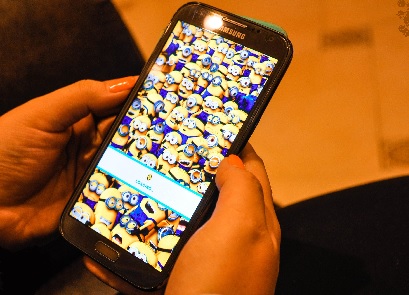It is believed that these games will take off to such a degree that consoles will be left in the dust.
Digi-Capital, an intelligence firm, has released the results of some of its latest research, which has revealed that spending on mobile gaming software is growing at such a rate that it will have left consoles way behind by the year 2018.
It has predicted that spending on mobile games across all platforms, this year, will reach $88 billion.
This will, in fact, mean that mobile gaming will not only outpace that of consoles, but of the entire industry. Digi-Capital has also predicted that the tablet and smartphone games spending figure will rise at a rate of 8 percent per year, so that it will break the $110 billion mark by the close of 2018. No other type of device is expected to generate a greater amount of revenue than mobile when it comes to video games. In fact, those devices are predicted to bring in more money than consoles by this year, already.
These console and mobile gaming figures do not include the sales from hardware, such as the systems themselves.
 The figures are based on the sale of mobile games, only, and do not include the income generated from the sale of systems such as PlayStation 4 and Xbox One. Furthermore, those figures also didn’t take into account the PC games over Steam, or any of the massively successful free-to-play games such as League of Legends.
The figures are based on the sale of mobile games, only, and do not include the income generated from the sale of systems such as PlayStation 4 and Xbox One. Furthermore, those figures also didn’t take into account the PC games over Steam, or any of the massively successful free-to-play games such as League of Legends.
Tim Merel, the founder and managing director of Digi-Capital, explained in the company’s report that “Where mobile games will take $3 of every $10 spent by gamers on software in 2015, that figure will go up to $4 out of every $10 by 2018.” He also went on to add that “Mobile games revenue will grow from $29 billion in 2015 to $45 billion by 2018 at 15 percent annual growth.”
Merel explained that since 2013, the Asian market has dominated the revenue for mobile gaming, when compared to Europe and North America. The company forecasted that this market will continue to move ahead, until it will represent half of all revenue in smartphone and tablet based games by 2018.
Mobile gamers spend an average of two hours playing mobile games, daily.
According to the recently published NPD Group’s Mobile Gaming 2014 report, mobile users are spending more time playing games on their tablets or smartphones now (an average of two hours per day) compared to two years ago (an average of 80 minutes a day).
Between 2012 and 2014 the amount of time consumers spent playing mobile games increased by 57 percent.
The latest mobile gaming survey from NPD Group included 5,566 participants that varied in age (U.S. gamers aged 2 years and older). The participants answered online survey questions, with those who were under the age of 18, requiring parental guidance to complete the survey.
The report found that mobile consumers who spend the most time gaming per day are those aged six to 44. That being said, it was found that children just under 13 (tweens) tend to have the longest gaming sessions. In addition, the survey discovered that children aged two to 12 years are playing more games (an average of five) and are the group that is also the most likely to play paid games.
Tablets appear to be driving the mobile gaming trend.
 Although tablets lack the popularity of smartphones and affordable notebooks, the survey discovered that when it comes to gaming, tablets are not only thriving, but they are the gadgets that appear to be driving the gaming trend among mobile devices.
Although tablets lack the popularity of smartphones and affordable notebooks, the survey discovered that when it comes to gaming, tablets are not only thriving, but they are the gadgets that appear to be driving the gaming trend among mobile devices.
In fact, tablet users play more mobile games and play these games for longer than iPod Touch and smartphone users. They are also far more likely to purchase game apps and make in-app purchases compared to smartphone and Touch owners.
Nevertheless, the fact that tablets seem to be the leading mobile gaming device isn’t all that surprising when considering the research that was conducted by NPD Group, which looked at the device habits of both adults and children. After all, the group that was found to spend the most time playing games, playing more games and playing paid games, were children. Thus, it is less likely that participants in this group would have a personal smatphone device. It is far more likely that these children would play their games on a family tablet and not on a parent’s personal smartphone.
 The figures are based on the sale of mobile games, only, and do not include the income generated from the sale of systems such as PlayStation 4 and Xbox One. Furthermore, those figures also didn’t take into account the PC games over Steam, or any of the massively successful free-to-play games such as League of Legends.
The figures are based on the sale of mobile games, only, and do not include the income generated from the sale of systems such as PlayStation 4 and Xbox One. Furthermore, those figures also didn’t take into account the PC games over Steam, or any of the massively successful free-to-play games such as League of Legends.
 Although tablets lack the popularity of smartphones and affordable notebooks, the survey discovered that when it comes to gaming, tablets are not only thriving, but they are the gadgets that appear to be driving the gaming trend among
Although tablets lack the popularity of smartphones and affordable notebooks, the survey discovered that when it comes to gaming, tablets are not only thriving, but they are the gadgets that appear to be driving the gaming trend among 